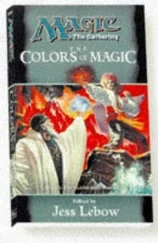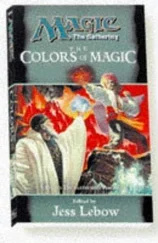J. M. Sidorova
THE COLORS OF COLD
A NEW STORY FROM THE AGE OF ICE
She paints and powders her face, pins her hair, tightens a corset over her shift, dons petticoats, chemisette, dress, jacket, shawl, elbow-length gloves, turban. She gathers her papier-mâché flowers back into the basket. The much-thumbed blues with the word Voir , Watch, inscribed on their petals, reds with Effleurer , Touch Lightly, and whites with Ressentir , Experience Physically. Her flowers are admission tickets, and the inscriptions, pretty names for three grades of entertainment she offers. Blue, white, red—the three revolutionary, patriotic French colors, they don’t just stand for Liberté, Égalité, Fraternité —they are her colors too. She’s known no others. She is twenty-two years old, and the Revolution is twenty-four.
She thinks back to the prior evening. A young man named Julien came to see her. He had purchased a red flower, Touch Lightly. He was a veteran of the Russian campaign. His left leg ended at mid-thigh. When he plunked into the chair in her room, he kept his crutches under his arms, and they angled to the floor on each side like bony, flightless wings. He kept bouncing his good leg up and down, the heel of his boot clacking on hardwood. He asked for her name and she said Constance, the first one that came to her mind. Just another nom de guerre. A day later she wishes she were gentler with Julien, refrained from telling him ghastly stories. Wishes she told him her real name.
Although even that name, Cherie—is it not, after all, another nom de guerre?
She thinks she hears cannons—from the heights of Montmartre, from the plains of Saint-Denis. But perhaps she is mistaken. She picks up her flower basket and walks an unlit passage barely wider than her shoulders, and then a corkscrew of stairs down to her little showroom, where she empties the basket into a tin bowl before the stage, wakes up Marquis, checks the thermometer. It’s the end of March and days are getting warmer. Warmth lingers later into the night, leaches all the way in through the masonry of the Palais-Royal, its plaster, wallpaper, draperies. To keep the air in the room just right she’ll soon need to buy ice, and ice is expensive in summertime. And ice blocks, stealthily placed around the stage, make her feel a cheat. But there is only so much she can do. Spectators warm up the room by their mere presence. Today, she can only accommodate an audience of thirty, though she wonders whether there’d be any attendees at all, what with the war. All the newsstands on the ground floor of the Palais announce that the Coalition armies are drawing in around Paris. All the coffeehouses of the Palais are buzzing with war talk. Will the French army hold? If it does not, will Paris be sacked?
And yet—the boutiques of the Palais are open, pub cellars and gambling rooms too. In the court of the Palais this afternoon, vendors of roasted chestnuts and lemonade were doing brisk business, the prim old lady with musical glasses was dinging out her tunes, and Monsieur Grimacier still contorted his ample face into the wildest shapes and announced them, for the public’s edification, as Righteous Rage, Pang of Remorse, Suppressed Shame. Parisians still need to eat, drink, gawk, and talk, war or not, but will they come to her show, to the act of Mademoiselle Froid?
“Let in no more than thirty people,” she tells Marquis just in case. The old man shakes his head and shuffles to the doors.
* * *
People do come (she peeks through the holes in the stage curtain). They file in, all ranks and vocations mingling jauntily; they could be merchants and civil servants, officers and shoeblacks, fruit girls and matrons. They smell of beer and coffee and old clothes. They take their seats. The chairs are a vestige of the room’s past life as a café. Two lives ago it was a comedy theater where they ran a puppet show about the wretched Philippe Égalité, the original owner of the Palais. His overindulgent days as Duke of Orléans, his execution. The room’s walls need new wallpaper, the dormant fireplace, a chimneysweep’s attention. There is a small plaster cast of the Louvre’s Venus de Milo by the entrance—another leftover. Even from her vantage point behind the curtain, Cherie can see the gray buildup of thumb grease on Venus’s feminine parts.
Cherie thinks of Julien, the one-legged veteran. He told her he’d seen her act, and she tries to recall his coming here. When was it? Was it more than once? It’s a long way for him to clomp to the Palais from Les Invalides, where he’s been lucky to still have a cot. It seems to her—just as she notices his absence now—that she would have remembered him coming. But she doesn’t.
Marquis is preparing the audience. He knows showmanship. “This stage is bare as my pate, mesdames and messieurs.” He tips his wig, drawing a few snickers. “No undignified trickery. No devices other than knowledge of physics. Nothing unsafe or unsound.”
There are devices, albeit those of physics, not trickery. Two mirrors—man-sized concavities made of polished tin—are recessed into the corners of the stage, facing each other. She needs them for her act.
Marquis thanks the audience for attending the show on “a day as momentous as this.” He refers to the war. “Tonight may well be the eve of a great battle.” She is ready for a cue to step out—but Marquis is not done. “And you’ve come to the right place on a night like this! An Englishman I once met said Paris is a place where nothing is secure or can afford security, least of all the Palais-Royal. A lie, mesdames and messieurs, a dirty British lie! This is the safest place in Paris. We are perfectly secure here in the Palais-Royal—” He spreads his arms and makes a dramatic pause. “—as long as we know which floor we are on.”
The audience creaks its chairs, chuckles, amused. She wonders what the old man is up to, even as she agrees that she and Marquis do feel safer here, inside the Palais. This is their home. They’ve hardly gone outside in months. She sleeps in her boudoir up in the garret; Marquis sleeps in what used to be a kitchen adjoining this room. The inner court is where they get their fresh air. They take their meals down a hallway in the Café Montansier. One floor up, the bathhouse Athénien is for washing.
Her life is in these rooms, she thinks, while Marquis dramatically reviews the topography of the Palais for the audience: “The first floor?”—“It is for arts, attractions, and amusements.”—“The second floor?”—“Is for eating and gambling.”
“The third floor—is for pleasures of love.” Marquis savors the word like a true connoisseur, pinching the air with his fingertips. Still behind her curtain, Cherie is getting impatient: the lanterns are burning, the room air is getting warmer.
He says, “When we know which floor we are on, we know what to expect, and therefore we are safe. It is only the rooms between the floors that are unsafe.” He makes owl eyes and leans forward. “The rooms that belong on two floors at once. Bordello boudoirs that double as ghost shows. Restaurants that reenact the Reign of Terror. Public baths that purport to be ethnographic museums! Which floor are you on, mesdames and messieurs, do you know?”
She does not like at all where this is going. She hears sprinkles of laughter. A man says, “First floor?” Another ventures a guess: “First and third?” A woman titters.
She’ll have to have a talk with Marquis after this show. The older he gets, the more he seems to forget that her “act” is not effortless. He slips into believing that she can do what she does at will, and therefore can perform—if only she stopped being so capricious and saw the light of reason—for hundreds of people, every day of the year, anytime after he is done tantalizing the audience. But she can’t; she’s told him over and again that she can’t, and that is why they’ll never make enough money on these shows alone, and the rent for this shoddy room goes up and up, because of the war and—
Читать дальше












